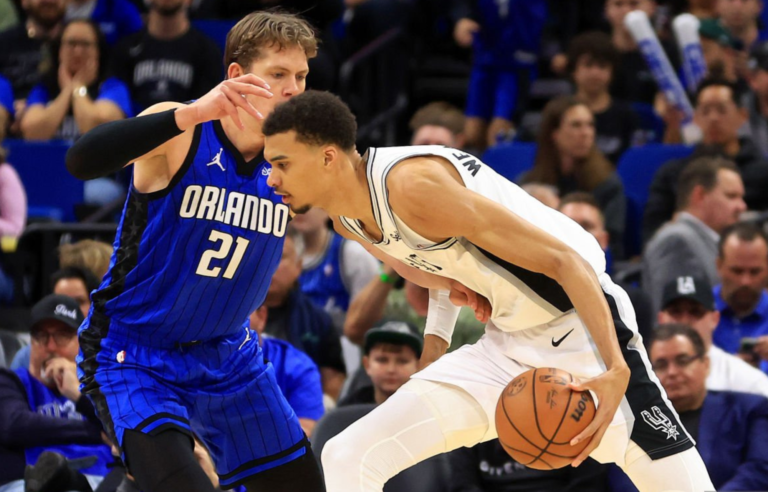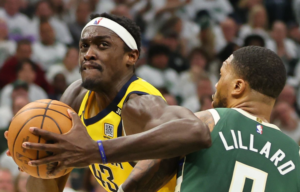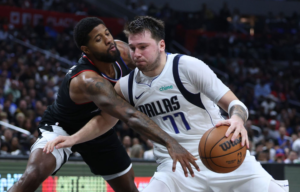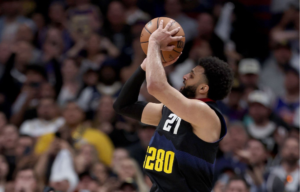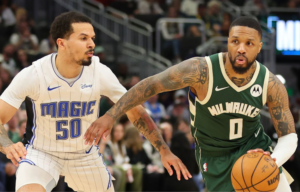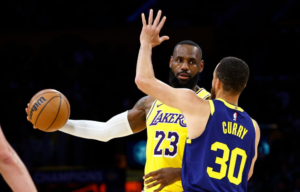PHOENIX — Following the Denver Nuggets’ 25-point loss in Game 2 of the Western Conference Semifinals against the Phoenix Suns, a dejected Mike Malone minced no words when describing his team’s effort.
“What I saw tonight was one team who wanted to be here and another team that didn’t want to be here,” Malone told reporters via Zoom.
“We allowed the impact of not getting shots to go down on one end to impact our effort on the other…and that’s why we got our ass kicked.”
Unfortunately for the Nuggets lead man, Denver had more than their fair share of missed shots to help deter their defensive effort.
Despite ranking third in the league in field goal percentage during the regular season—and sixth in effective field goal percentage—the Nuggets shot a measly 40% from the field Wednesday night, along with a sub-par 32.6% from behind the arc.
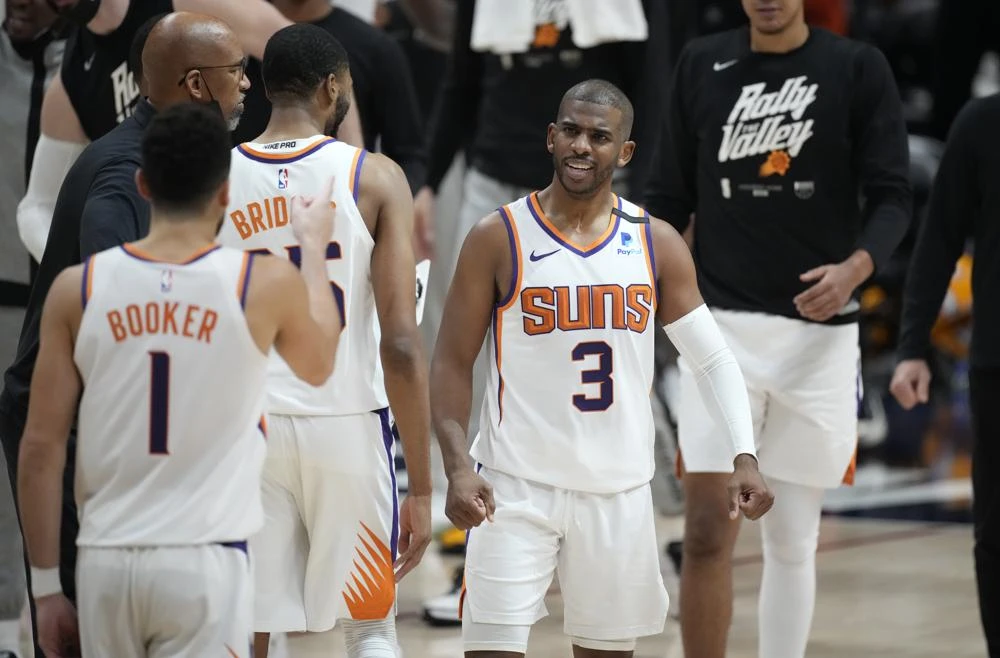
It was an offensive performance that was not only the result of a stingy Phoenix defense that was superb in the execution of their switching scheme but a Nuggets attack that lacked the ability to attack off the dribble and exploit potential mismatches.
While Denver’s success in attacking the lackadaisical effort put forth by the Portland Trailblazers in Round One may have allowed many to forget the absence of Jamal Murray to a season-ending ACL tear—especially on the back of breakout performances from Michael Porter Jr and Monte Morris, respectively—the Nuggets undeniably have missed the offensive creativity of their best raw scorer during the first two games against the Suns.
Even accounting for the resurgent play of Will Barton in limited minutes—who suited up for the first time in seven weeks following his recovery from a hamstring strain—Phoenix was more than comfortable loading up on Nikola Jokic all evening; readily abandoning Denver’s role players above the perimeter and daring them to make them pay.
As the double-digit point spread indicated, the Suns duplicated the strategy in a 116-102 Game 3 victory in Denver.
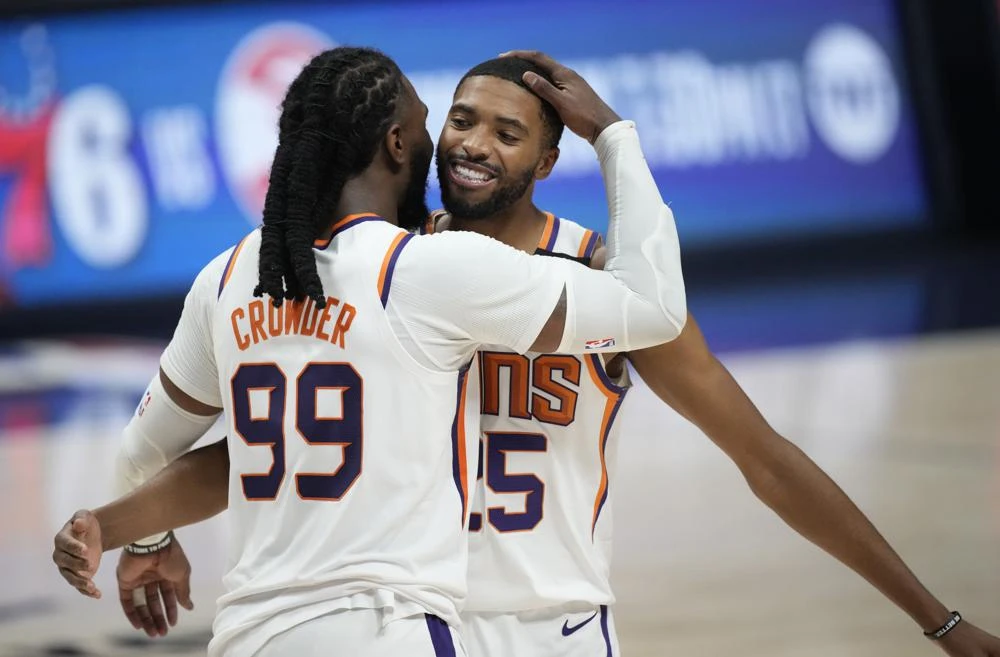
In fact, beyond the total field goal numbers, the most telling statistic from the match was that non-Jokic Denver players were a horrific 27-for-73 in the game. If the Nuggets have any hope of climbing back into the series, clearly, the team will need more from its role players.
Yet, as ugly as Denver’s performance was in Game 2, it almost certainly represents the lowest possible point the team is likely to sink this postseason. However hard it may be for shell-shocked Nuggets fans to believe, the reality is that Denver possesses more than their fair share of talent beyond their MVP-winning center to rack up enough points to be competitive against the Suns.
Not only are some of those missed perimeter shots bound to fall at some point—especially given the fact that many of them occurred with ample space around the shooter—but the easing of Barton’s minutes’ restrictions should allow the Nuggets to exploit the Suns slower-footed big men on switches.
However, while Denver’s offensive woes appear fixable as the series shifts to Colorado, Malone and company face far more pressing concerns on the defensive end, an area that yields itself to no readily available solutions.
While the team only ranked 21st in total defense during the 72-game regular season, according to tracking data from Synergy Sports, The Nuggets were actually above average in half-court sets, utilizing their size, physicality, and crisp rotations to lead the way in keeping opponents to under a point per possession.
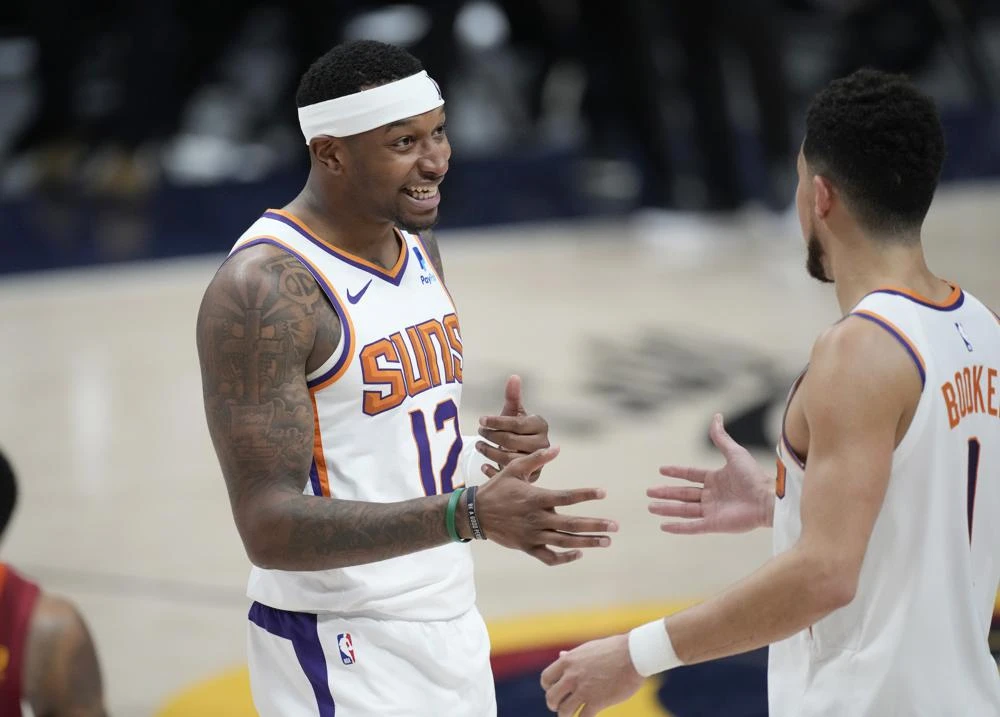
When they are defending the way they are built to, the Nuggets rely on their interior presence to bait opponents towards taking outside shots, a paradoxical approach in the modern NBA where teams are more than happy to foist however many perimeter shots they can get. Yet, while the Nuggets allow the eighth-most three-point attempts in the league, the team defends them at a respectable rate, allowing opponents to connect on a mere 36%, thanks to quick closeouts and timely help defense.
Unable to attack Denver inside the paint, teams all season have found the outside shots the Nuggets so readily serve up to be more of a mirage than structural weak-point, as the efficiency of the shot-selection comes to matter more than the volume of the shots themselves.
Through the first two games against the Suns, however, the Nuggets once stout half-court defense has all but crumbled, left in the dust by an offensive attack that has mitigated whatever advantage Mike Malone’s schemes might have provided.
Take what occurred midway through the second quarter in Game 2, Wednesday night.
Phoenix begins the action by running Devin Booker towards Chris Paul as if to initiate a screen for the Suns’ lead point guard near the baseline. Yet rather than set a pick, Booker receives the ball from Paul on a route that takes him towards the opposite baseline and near a lunging Deandre Ayton, who has come above the perimeter ready to set the screen.
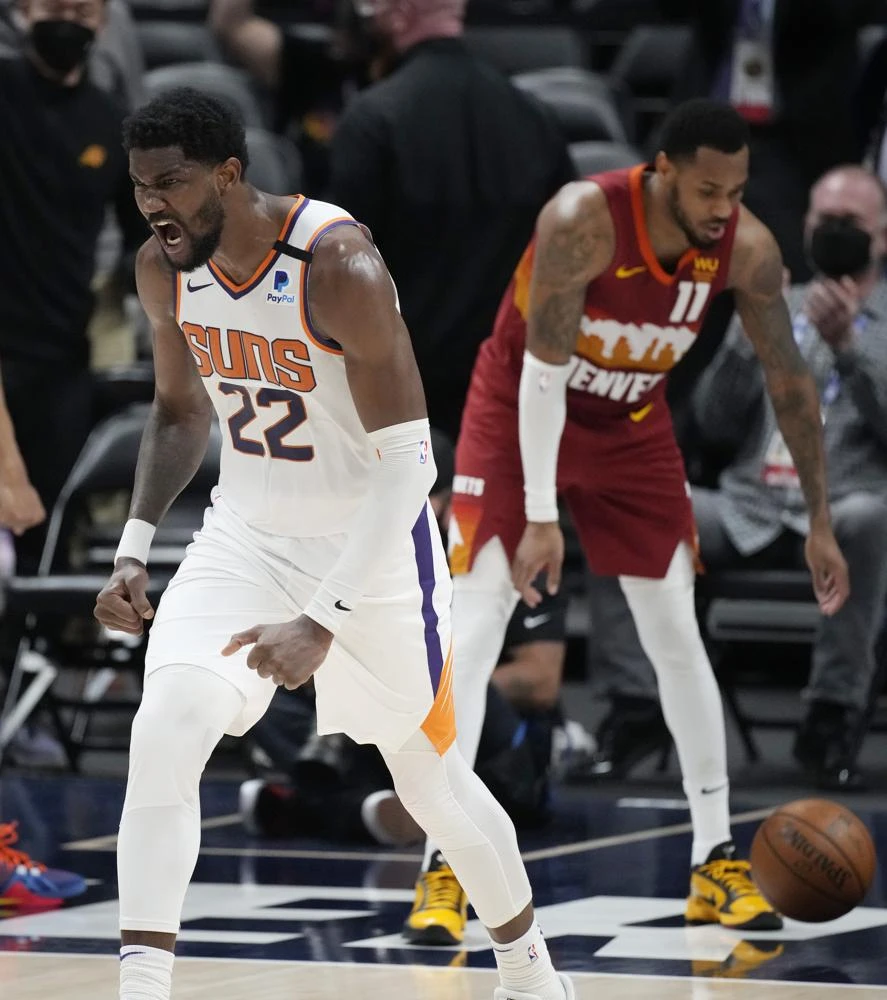
While Austin Rivers was narrowly able to contort his body to avoid the initial screen set by Ayton, the important piece of film for the Nuggets coaching staff is Nikola Jokic’s positioning just below the action. Anticipating that Ayton’s first screen would be successful, the center smartly rose from his position near the elbow to the perimeter, ready to block Bookers’ forward progress had he been able to get by Rivers.
Even better for Denver’s coaching staff is that Jokic immediately realizes that Booker is going to reverse the action and run through another screen with Ayton in the opposite direction, and so recovers to the top of the key and harasses the Suns shooting guard as he springs loose from the successful pick.
Though obviously, Jokic is at a disadvantage challenging Booker in a lateral footrace towards the rim, the Nuggets have more than prepared for the contingency, as the remaining three Denver defenders form a wall towards the interior—with Campazzo shading away from Paul along the baseline, JaMychal Green manning the lane, and Aaron Gordon ready to help off Mikal Bridges.
For the Nuggets, the action is the epitome of the type of “playing on a string” defense that has long characterized the team’s success. And for the first 12 seconds of the possession, it worked to perfection.
Until the Suns’ offense took a pair of scissors and rudely cut the string, that is.
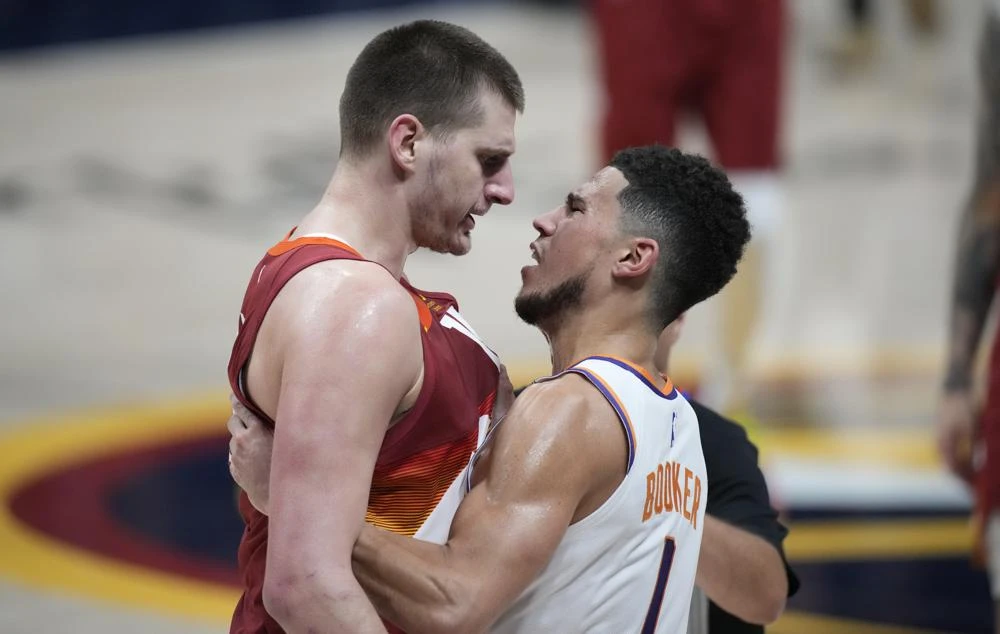
Following the brief success of corralling Booker and walling off the lane, the Suns shooting guard promptly reset the action with a drop pass to Ayton at the elbow, who then fired the ball back out towards Paul above the line, who himself then fired a quick pass to Cameron Johnson in the corner, who then attacked off the dribble before dumping the ball off to a cutting Bridges.
As if that weren’t enough, Bridges, for good measure, also completed one final pass back towards Johnson, who had set himself on the opposite baseline following his dribble-drive action and was rewarded with a wide-open three-point attempt that he promptly clanged off the backboard.
Get all that?
In 24 seconds, the Suns completed 6 passes, ensured all 5 players touched the ball, set 3 screens, 2 ball reversals, and left 1 Denver defense reeling with whiplash.
In all fairness, watching the play unfold, any prognosticator—or surely fan—would be hard-pressed to argue that the Nuggets could have defended the action any better.
They communicated, they reacted, they had good positioning, and they still only had luck to thank for the fact that the Suns missed a wide-open three-point attempt.
This is, in essence, the heart of a problem facing the Nuggets. Operating with a roster that is devoid of a singular defensive standout on the level of Anthony Davis or Kawhi Leonard to tip the scales back towards their favor, Denver must rely on a scheme that harnesses their collective effort and hope that the sum of its parts is greater than the individual components that make it up.
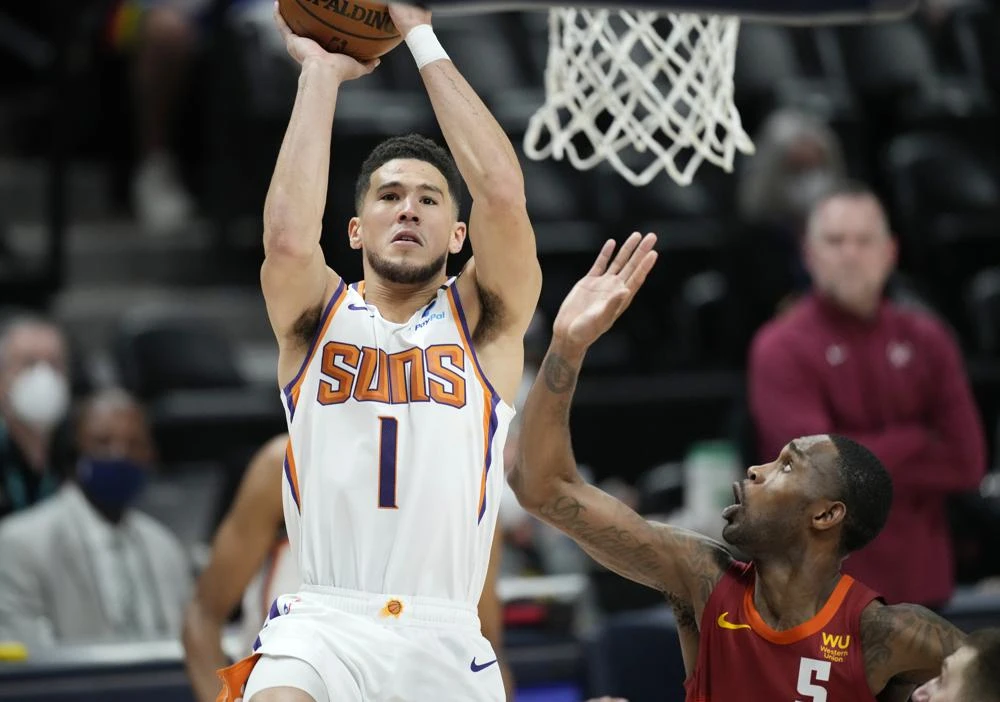
Unfortunately for the Nuggets, the Suns have displayed enough patience to continuously probe that scheme, waiting for the first misstep to occur before attacking—death by a thousand paper cuts.
With the game winding down, Wednesday night in Arizona, an overjoyed Phoenix crowd ruthlessly chanted “Sweep, Sweep” at the visiting Nuggets as the clock wound down to zero. After witnessing the collapse of Denver’s half-court defense, it didn’t sound like hyperbole.



